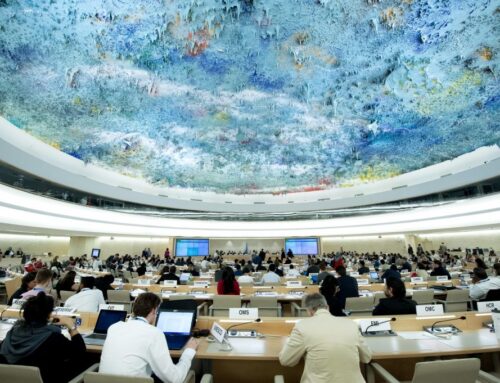In 2024, children’s rights globally have been severely impacted by escalating challenges, making it one of the most difficult years for children worldwide. The ongoing armed conflicts have intensified, resulting in the tragic loss of tens of thousands of young lives, while countless others have been injured or left traumatized by violence. Millions of children are also struggling with the devastating effects of malnutrition, displacement, and lack of access to basic services such as education and healthcare. In conflict zones, children are not just the victims of violence but are often specifically targeted or recruited as soldiers, subjected to sexual exploitation, or forced into child labour. The rise in global poverty and economic instability has worsened these vulnerabilities, leaving children disproportionately affected by the breakdown of social structures and governance. Despite the global framework created to protect children’s rights, such as the United Nations Convention on the Rights of the Child (UNCRC), there has been a marked regression in the protection and well-being of children due to significant strain on monitoring and enforcement mechanisms. This has made the need for a renewed and stronger global commitment to protecting children’s rights more urgent than ever.
The United Nations Committee on the Rights of the Child (CRC Committee) plays an essential role in ensuring the protection and promotion of children’s rights around the world. As an independent body of experts, the CRC Committee reviews State Party reports on the implementation of the UNCRC, evaluates progress in safeguarding children’s rights, and offers recommendations for improvement. Its work spans a wide range of issues including child labour, education, health care, and protection from violence and exploitation. By holding governments accountable, the CRC Committee helps ensure that children’s voices are heard and their fundamental rights are respected. However, the UN financial crisis has presented a major threat to the CRC Committee’s ability to carry out its vital work. The UN liquidity crisis, driven by unpaid contributions from member States, has disrupted key activities, such as the review of State Party reports. These financial constraints have hindered the Committee’s capacity to monitor children’s rights, putting vulnerable populations at even greater risk of exploitation, neglect, and abuse.
The financial difficulties have been compounded by a UN General Assembly resolution in 2023, which restricted the ability of the United Nations Office at Geneva (UNOG) to continue providing hybrid meeting services for official sessions in 2024. This resolution, which did not grant UNOG the mandate to continue offering hybrid meeting options, added significant logistical and financial burdens, particularly for the CRC Committee, which relies on such meetings to engage with a broad range of stakeholders. Without hybrid formats, key civil society organizations (CSOs) and experts, including those representing children’s voices, face challenges in fully participating in the Committee’s work.
During the 97th session of the Committee on the Rights of the Child, the Chairperson, Mrs. Ann Skelton, emphasized the urgency of addressing the situation, highlighting the fact that in 2024 alone, tens of thousands of children had been killed or injured in conflicts, with millions more facing malnutrition. She stressed that the erosion of children’s rights cannot continue, and that the CRC Committee needs more resources to fulfil its mission to protect and promote these rights effectively. She also expressed concern about the pushback on children’s civil rights, which although not always in the headlines, are undermining the recognition of children as rights holders. The Chairperson called for a greater commitment to empowering the CRC Committee, especially given the current backlog of State Party reports to be reviewed.
In response to these challenges, Child Rights Connect has been a critical advocate for the continuation of the CRC Committee’s work. The organization has actively highlighted the impact of the UN financial crisis and the General Assembly’s resolution on the CRC Committee’s ability to function. One of the notable actions taken by Child Rights Connect was the joint letter signed by nearly 200 civil society organizations worldwide, sent to the Permanent Missions to the United Nations in Geneva and New York and the Secretary-General of United Nations in May 2024 to raise concerns about the cancellation of the May pre-session of the CRC Committee. The pre-sessions play a crucial role in ensuring that children’s rights are adequately represented and discussed before official sessions. The cancellation of this space hindered the ability of stakeholders, including children, to engage with the CRC Committee, limiting opportunities for meaningful dialogue and advocacy on children’s rights. This collective action, supported by civil society, underscored the urgency of addressing the financial and logistical challenges facing the CRC Committee.
Child Rights Connect also reinforced its concerns during the 97th CRC session, urging the UN and its member States to prioritize funding for the CRC Committee’s work. Our organisation called for urgent action to secure the financial stability needed to continue safeguarding children’s rights. Despite the financial setbacks, Child Rights Connect, in collaboration with UNICEF and other partners, managed to find a solution through collaborative efforts, to allow the May pre-session to continue, albeit in a modified format. The pre-session was held online, ensuring that key elements of the CRC Committee’s work could proceed despite the financial constraints. As a result, Argentina and Ecuador, two countries scheduled for review under the simplified reporting procedure, were able to engage with the Committee and progress in their commitment to uphold children’s rights.
The resilience of Child Rights Connect, UNICEF, and other partners was pivotal in maintaining the momentum of the CRC Committee’s work. Their joint efforts demonstrated the importance of collaboration in overcoming the financial and logistical challenges posed by the UN current situation. The online pre-session, though not the ideal format, allowed for the participation of stakeholders and kept the review process moving forward.
In addition to these efforts, Child Rights Connect has continued to provide critical coordination and support to civil society organisations. Despite the financial and logistical obstacles, Child Rights Connect has been instrumental in ensuring that almost 250 CSOs and over 90 children were able to participate in the CRC reporting process. This ongoing support has ensured that children’s voices, as well as the expertise of civil society, remain central to the CRC Committee’s work in monitoring and promoting children’s rights worldwide. By continuing to facilitate this engagement, Child Rights Connect has played a vital role in amplifying the voices of those most affected by the challenges to children’s rights, ensuring they have a platform to influence change and accountability.
In conclusion, while 2024 has been a challenging year for children’s rights, with many obstacles still ahead, the continued commitment of Child Rights Connect and their partners has been essential in maintaining the focus on protecting children’s rights globally. The financial constraints and logistical challenges faced by the UN have not stopped the critical work of the CRC Committee, but they have highlighted the need for greater support and flexibility in how meetings and engagements are held. Hybrid formats, which allow for greater inclusivity and participation, are particularly important in ensuring that all voices, regardless of location or circumstance, can be heard. Moving forward, Child Rights Connect will continue to advocate for solutions to these challenges, ensuring that the Committee’s vital work can proceed without interruption, and that the rights of children remain a global priority.
See our 2024 Case study CRC reporting: here






Leave A Comment